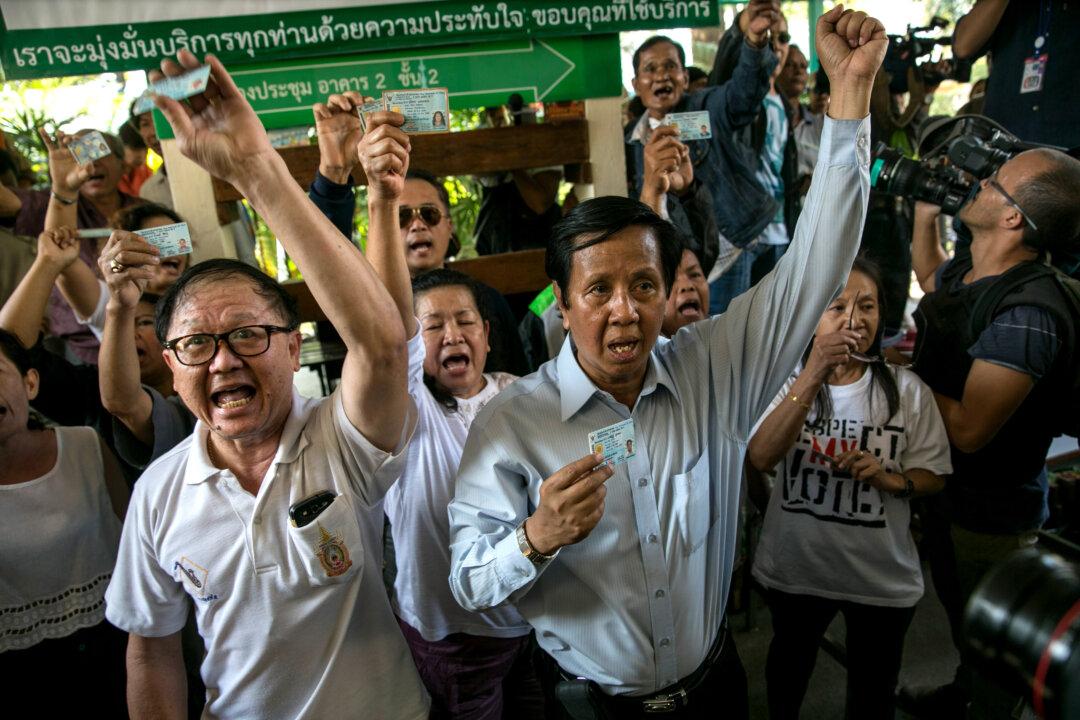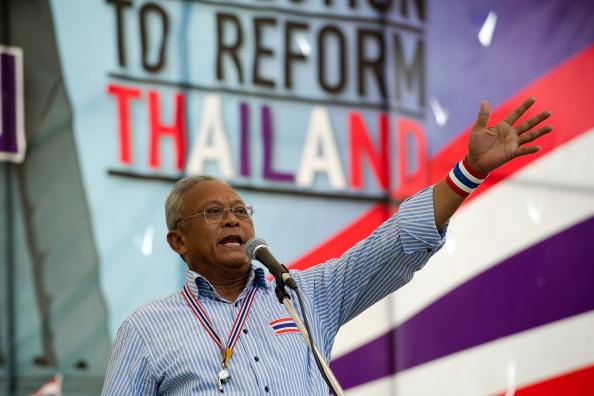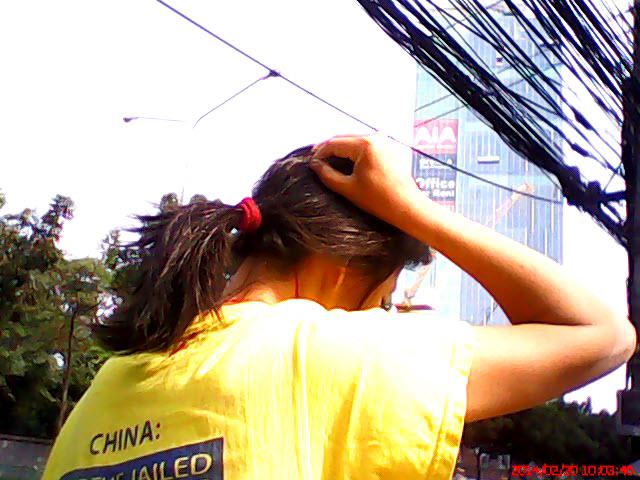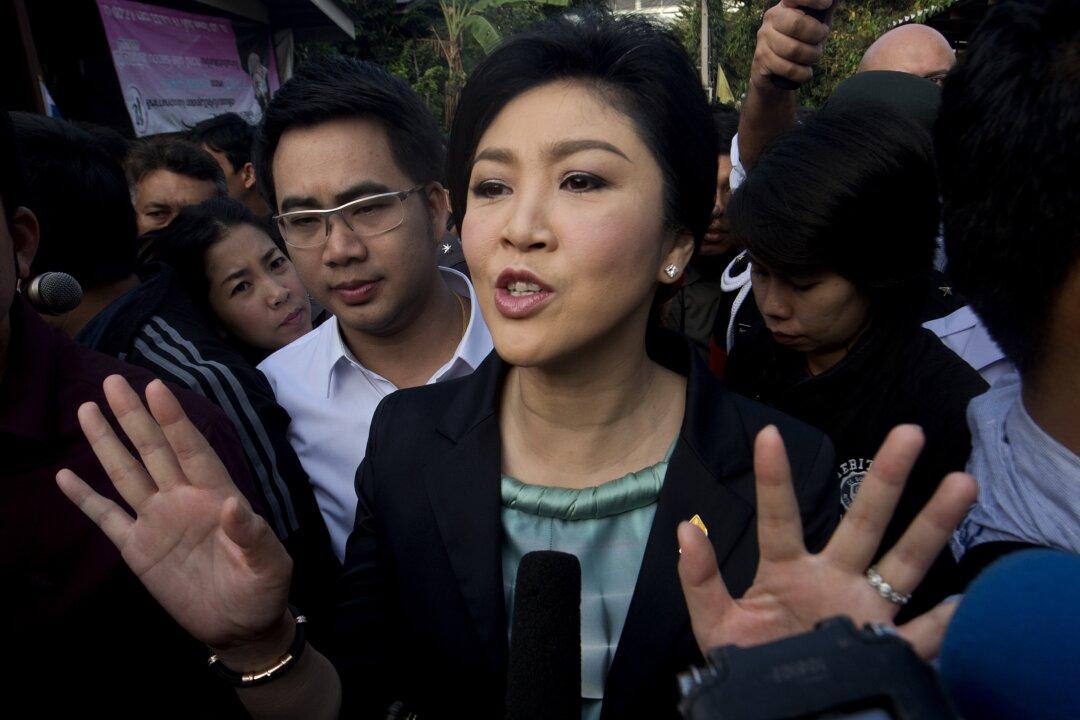BANGKOK—Protesters aiming to oust the government of Prime Minister Yingluck Shinawatra managed to disrupt some of Thailand’s general election Sunday, in a further escalation of the country’s protracted political crisis.
Thailand’s Election Commission said protesters’ efforts to spoil the election resulted in no voting taking place in 11 percent of the 93,952 polling stations across the country, reported the Bangkok Post.
Not all of the country’s provinces took part in the election, most of those being in the south, which is largely loyal to the main opposition Democrat party that boycotted the elections.
However in the populous north and northeast of the country, where the Yingluck government has its largest support base, there was good voter turnout and no anti-election protests reported.
Under heavy police security, Yingluck cast her own vote at a polling station in northeastern Bangkok, cheered on by supporters.
“Today is an important day,” Yingluck told reporters. “I would like to invite Thai people to come out and vote to uphold democracy.”
Voting was not as easy in other parts of Bangkok.
At one of the more volatile districts of the capital, voters in Din Daeng scuffled with protesters and hurled bottles at each other under heavy police security.
Among the protester’s anti-election tactics have been the intimidation of people attempting to vote, locking gates to deny entry to polling stations, and blocking ballot paper deliveries.
Twenty-two year old university student Chatnarong Muangwong was registered to vote in the early polling on Jan. 26 but his polling station was blocked off by protesters, making it impossible to vote.
“Thailand is a democratic country or at least it has claimed to be, so [it has] made me really upset that some people don’t respect this democratic way anymore,” he said, adding that he does not support either the Yingluck government or the protesters.
The risk for violence in the city Sunday was heightened by an hourlong shootout the day before between pro-government red shirt supporters and the protesters. At least five people were injured, one of them being an American photojournalist, James Nachtwey.
Deadly Protests
Ten people have been killed and hundreds injured during incidents related to the protests, which began in earnest early November in response to an amnesty bill that would have allowed Yingluck’s brother the former Prime Minister Thaksin Shinawatra to return from self-imposed exile. Thaksin was ousted from power in 2006 by the military in Thailand’s 18th coup. He lives in Dubai to avoid corruption changes, which he said are politically motivated.
The anti-government protesters are a mixture of royalists, middle-class Bangkokians, southerners, and anyone else who despises the Shinawatras. They said that Yingluck is her brothers’ proxy. They also allege she is massively corrupt and disrespectful to Thailand’s revered King Bhumibol Adulyadej.
The protesters want to reform the Thai political system so true democracy can be practiced in the country. To do that, they insist Yingluck must step aside so an unelected interim government can carry out reforms before any future election is held.
Crisis Continues
The results of the election just held are not expected to be announced soon and Thailand’s Election Commission has said that another round of advanced voting needs to take place on Feb. 23 to fill the seats required to form a new government.
In the meantime commentators are saying there is a strong possibility that the constitutional courts will have the elections annulled via legal justifications.
And even before then, Yingluck and her government face other challenges such as investigations by the Anti-Corruption Commission into her government’s controversial rice-pledging scheme.
Many commentators now see a judicial coup as the most probable way that the Yingluck government will be forced out of office.




